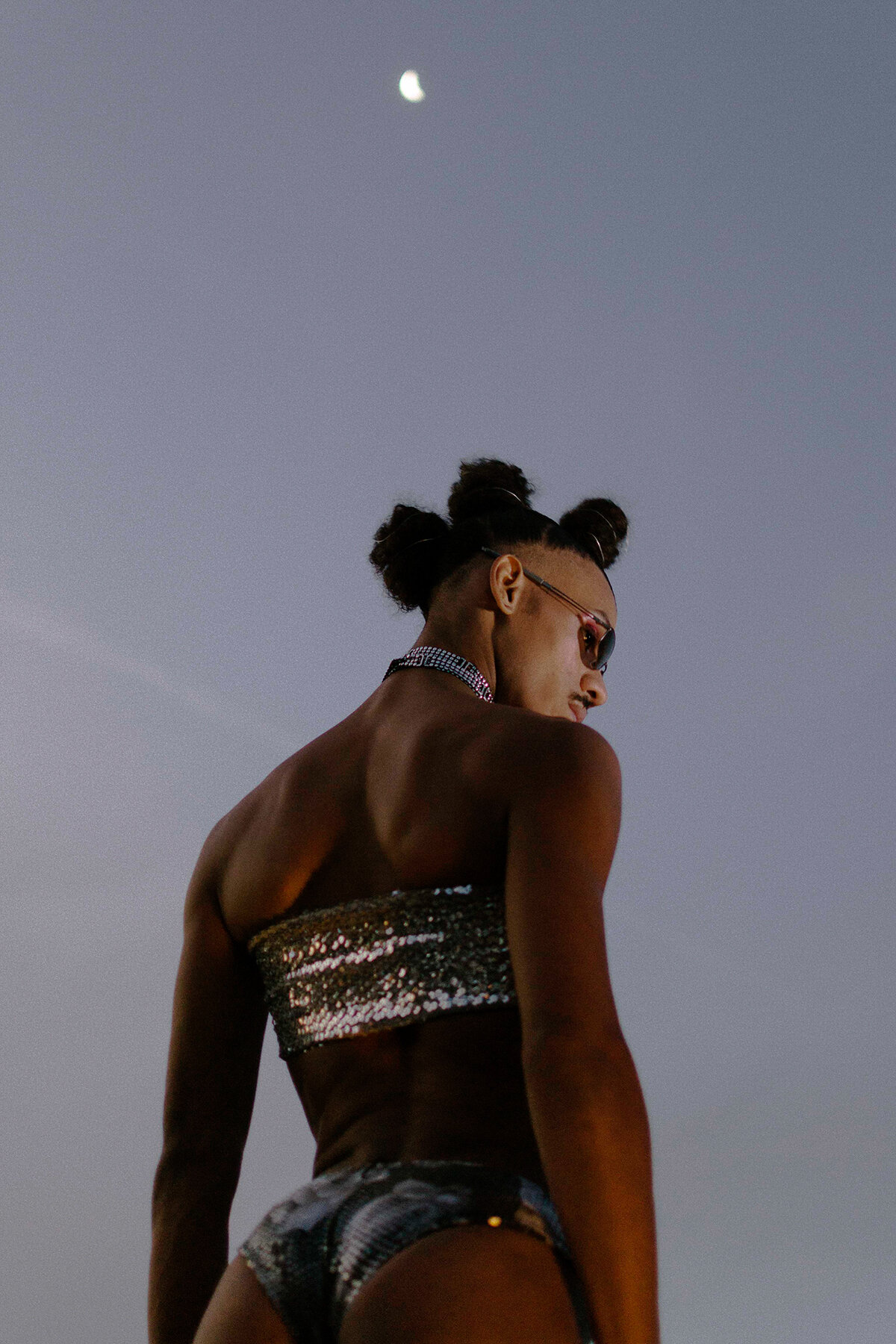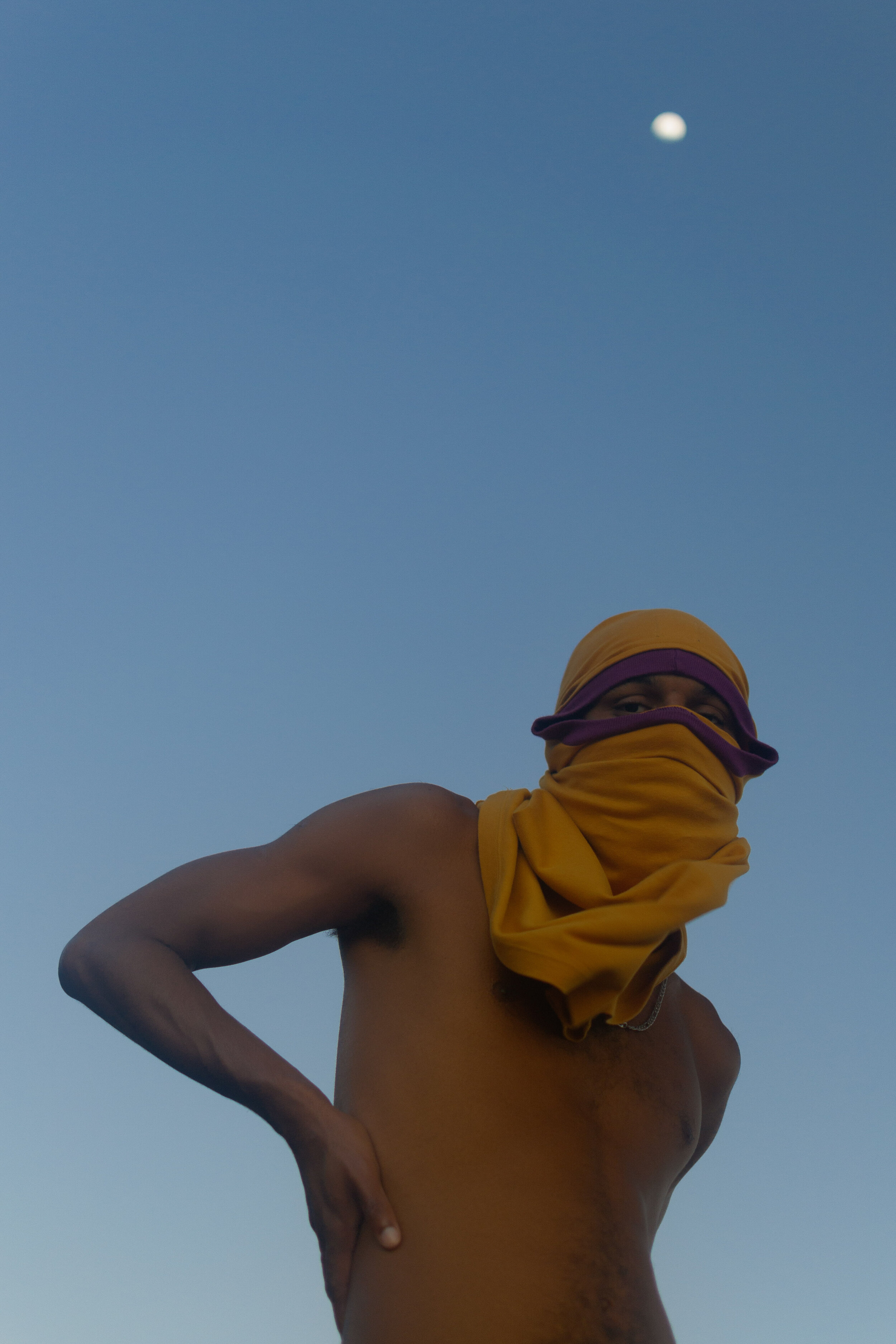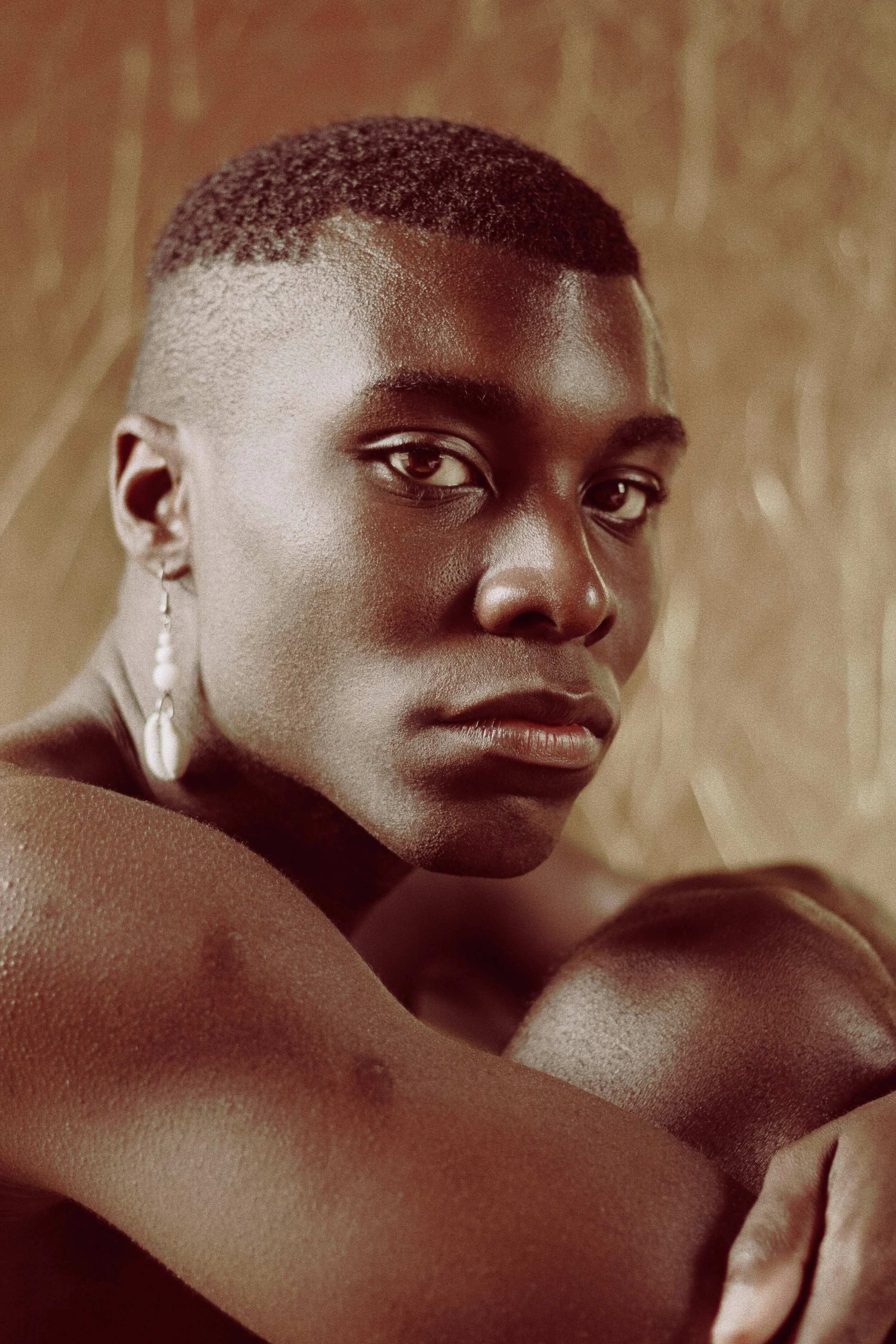Photographer Rodrigo Oliveira captures the intimate moments of Rio’s Queer BIPOC community
This is A HOT MINUTE WITH, a quick-fire interview series championing all the rising talent catapulting into fashion, art and music’s fickle stratosphere. From pinch-me moments to bad dates and even worse chat-up lines, think of it as an overindulgent conversation – like the ones you have in sticky club toilets at 4.A.M. Except these guests don’t regret the overshare…
Courtesy of @rodyoli
NAME RODRIGO OLIVEIRA
AGE 29
LOCATION Rio de Janeiro, Brazil
STAR SIGN Pisces
GO-TO TRAINERS Reebok Classic Leather.
AGENCY ROCKET SCIENCE
In 2019, Jair Bolsonaro had just become president of Brazil and the queer community of Rio de Janeiro watched as another far-right politician disguised ignorance, inequality, homophobia and hate under the guise of “traditional family values.” The same year, photographer Rodrigo Oliveira had just returned from studying in Germany to find his home community - the queer folk of Rio’s peripheries - to be more alive and vibrant than ever. “When I left Rio the first time, I either didn’t know the queer scene here or it didn’t really exist. We weren’t being honest with ourselves. But when I got back, everything had changed. The way the community was expressing identity was so fascinating to me,” he says in between the faint bird songs of a 25 degree morning in Brazil.
Upon his return, Rodrigo realised that his next photography series had to be an exploration of the community he had come back to - a chance to explore what makes a marginalised community within a marginalised community so undeniably strong in the face of oppression. “I wanted to work on something that needed attention and that I could work on as an insider and not an outsider,” he says. And back in 2019, when normal life was taken for granted, Rodrigo’s opportunities to explore his community were part of his everyday. His friends, the people he met at “underground queer parties,” and other members of his small yet ever-growing community each had unique and very personal stories to tell about their challenges and triumphs as a queer person living in the peripheries of Rio.
“If you’re LGBT and you live in the periphery, you have a specific story and things you go through and deal with. The queer scene in Rio is very small. We end up knowing everyone. I see them at parties. I connect every time I have to take a photograph. It breaks down the barrier between the photographer and the subject. Whenever I photograph someone, I’m having a moment with them and we’re laughing and talking about all kinds of stuff. Sometimes it’s strong stuff like the oppression we face and stories of discrimination and everything, but I think that just brings us closer together. This allows them to really show themselves to me.”
It’s exploring the common struggles of the queer BIPOC community and “having a moment” that allows Rodrigo to achieve a poignant intimacy in each of his photos. The 29-year-old photographer does not document a community that is visibly hurting, or a group of people who look as though they are suffering under the weight of discrimination. Instead, Rodrigo shows a community that is thriving and declaring themselves as exactly who they are and who they want to be - a sight that is arguably more powerful and far more damaging to the ignorance that engulfs queer communities all over the globe.
“We make ourselves vulnerable because of the way we speak, the way we dress and the way we act,” he says. “But we stand for something. I don’t want to give up who I am just because people will oppress me. This is what I see in my community. It’s safe and everybody feels comfortable to be whatever you want. It feels like you’re in a utopia. It’s dreamy and it’s encouraging. That’s why part of my work is so eerie and dreamy, because it’s the way I look at the world - I look to the future. I just wish the world had caught up to the way I wish the world was.”
Ry Gavin: How has the past year affected your creative process?
Rodrigo Oliveira: I thought last year would’ve been the end of my career. The best work I was creating was heavily dependent on queer parties and events. After March, all parties in Rio had been canceled up to today. But then I focused my work on my close surroundings and I think that spending more time at home and in my hometown has made my work more personal and intimate.
RG: What is beauty in your eyes?
RO: I don’t really think I perceive beauty through my eyes. Beauty to me is more of a feeling - I feel beauty. Whatever makes me feel a special something is beautiful.
RG: Who would you most like to photograph?
RO: LINN DA QUEBRADA.
RG: Where do you find your inspiration?
RO: In the suburbs where I grew up.
RG: Where is your favourite place in Rio?
RO: Ilha Grande, an island off the coast of Rio.
RG: How much power do you think photography has nowadays?
RO: I think that photography has always held a lot of power. If used correctly it can be a great tool for change.
RG: What is one thing you want people to think about your work?
RO: I don’t think I have an answer to that question, people are free to think what they want. I just want them to respect my subject, it’s what matters the most to me.
RG: Who is the greatest queer icon of all time?
RO: INDYA MOORE.
RG: When did you first fall in love with photography?
RO: When I bought my first mobile phone with a camera.
RG: What do you hope people say about your work?
RO: That it can make a difference.
RG: What advice would you give to your younger self starting out as a photographer?
RO: ‘You might not have the best photo gear or resources like other photographers but there’s something about the way you see the world no one else has. Have faith in it...’
RG: What excites you most about the future?
RO: The opportunity to bring my community into the spotlight along with my work.
RG: One thing about your career so far that you cherish the most?
RO: The way I see the community I work with respond to my work.
RG: What is one thing nobody knows about you?
RO: I am an obsessive eater and not a fan of doing sports hehe.












